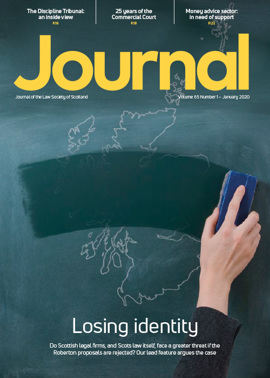Not just for Christmas

Happy new year. ‘Tis the season to be gritting, teeth that is, as credit card statements slide through the letterbox and hit the floor with an icy thud. The season for giving which brought all this generosity, not to mention profligacy, bubbling to the surface is a product of our most basic instinct. More blessed is it to give than to receive, we are told, and undoubtedly this is true in the case of novelty socks.
But giving, receiving and reciprocating do not just give us warm feelings; they are the foundation of humanity. According to the great anthropologist Richard Leakey, the essence of what makes us human is reciprocity: “We are human because our ancestors learned to share their food and their skills in an honoured network of obligation.”
There are physical as well as social benefits. In a newly reported experiment, researchers found that cancer patients suffer less pain if they care for other patients by cooking and cleaning for them, rather than just focusing on their own needs. It is known, too, that if we do a favour for someone, we tend to like them more as a result. In Influence: Science and Practice, the great social psychologist Professor Robert Cialdini identifies reciprocity as one of the most important dynamics of human behaviour. If I do you a favour, unless you are a sociopath, you will be highly motivated to do me one in return. We recognise this in our everyday language: “One good turn deserves another”; “You scratch my back, I’ll scratch yours”.
Sometimes rightly, we lawyers are perceived as being unwilling to do anything unless we are being paid for it. Bankers too: in Monty Python’s “Charity” sketch, Michael Palin attempts to elicit a pound from John Cleese, playing a director of the merchant bank, Slater Nazi. “It’s for the children,” Palin explains, nervously proffering a tin. “Let me see,” says Cleese. “I give you a pound, and get nothing back for it? Doesn’t seem like a very good deal to me.”
Yet the business case for giving is as strong as the moral, now more than ever, when there is unprecedented focus on the ethics of capitalism. “Giving should be entered into in just the same way as investing. Giving is investing,” said John D Rockefeller, who knew a thing or two about making a return.
Not all, but a great deal of charitable giving by business is done with an element of calculation by donors hoping to burnish their personal or corporate credentials. Law firms are no exception. You may argue that the moral value of their gift is diminished by not being entirely altruistic. But I take the view that in behaving this way, they are just recognising human nature, and that without the potential for mutual benefit, there would be far less giving, to the benefit of no one.
Choose with care
Where clients are concerned, the “gifts” most appreciated will always be price and service offerings which go above and beyond the call of duty, demonstrate the firm’s appreciation for loyalty, and a willingness to invest continuously in the relationship. In a recent piece, I drew the distinction between firms committed to romance, nurturing relationships for the long term, and those looking only for one night stands, interested as long as they are earning fees, but not otherwise. If you are a devout romantic, as I am, not just in this context, then giving generously in this way will be central to your modus operandi.
Just as the best gifts are chosen with care to match the needs and desires of the recipient, so the best firms ensure their most senior people regularly spend time without charge, talking to clients and connections about what they most want, and making sure they get it. The more value they add, the stronger their hold.
One size will not fit all, and the choice can seem bewildering. An excellent place to start is 51 Practical Ways for Law Firms to Add Value, published by the Association of Corporate Counsel, which can be downloaded here.
Their suggestions range from more flexible and transparent fee arrangements, to free secondments, electronic news alerts, and creating new partner roles, such as Managing Partner for Innovation, Managing Partner for Client Relationships, Managing Partner for Quantitative Performance (me neither), and Chief Client Service Officer. While many of these suggestions are aimed at large corporate firms with deep pockets, just as many are relevant to firms of every size and practice area.
“You only get what you give”, sang the New Radicals, a thought neither radical nor new. But as part of a thoughtful, effective business strategy, it has never been more potent.






